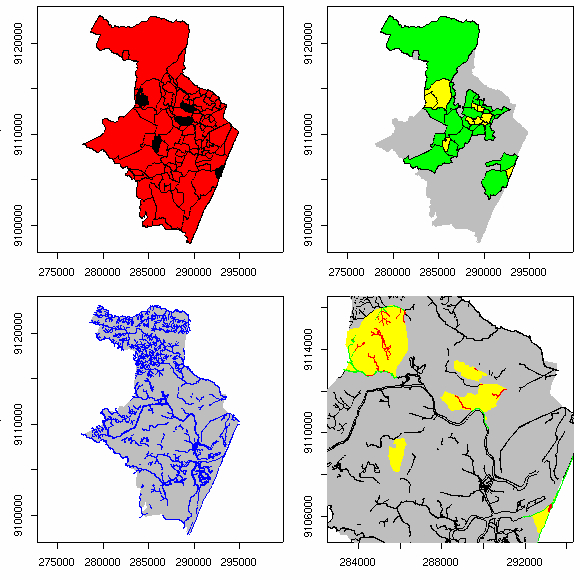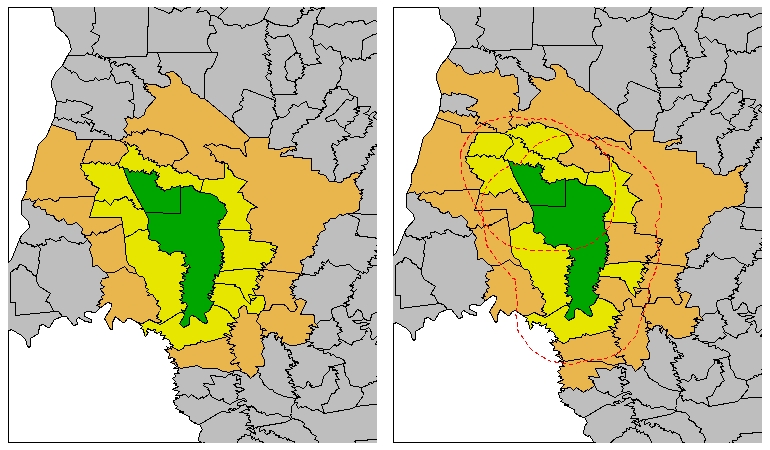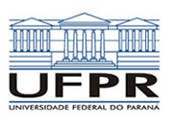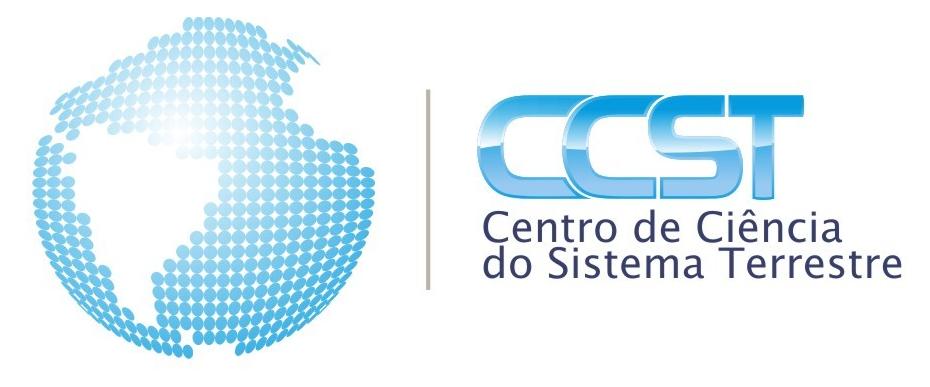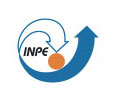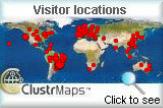aRT: R-TerraLib API

 aRT is an R package that provides the integration between the statistical software R and the GIS library TerraLib. The aim is to have a package for accessing geospatial data to be analysed in R. R is an open source language and environment for statistical computing and graphics. To learn more about R go to R project web page. TerraLib is an open source GIS classes and functions library, available from the Internet as a collaborative environment for the development of GIS tools. For further information visit TerraLib project web page.
aRT is an R package that provides the integration between the statistical software R and the GIS library TerraLib. The aim is to have a package for accessing geospatial data to be analysed in R. R is an open source language and environment for statistical computing and graphics. To learn more about R go to R project web page. TerraLib is an open source GIS classes and functions library, available from the Internet as a collaborative environment for the development of GIS tools. For further information visit TerraLib project web page.
Download and Installation
General Installation
- Install aRT dependencies as detailed in the dependencies section.
- Install as usual for R packages:
> install.packages("aRT", contrib="http://www.leg.ufpr.br/aRT")
See FAQ for more details.
Windows binary
- Instead of using install.packages(), you can download aRT_1.9-2.zip (Thursday, 18-Feb-2014) and use 'Install package(s) from local zip files' from the 'Packages' menu.
Source code
| aRT_1.9-2.tar.gz (Thursday, 18-Feb-2014) |
Dependencies
aRT depends on other availability of resources as follows and may not run correctly with versions other than indicated.
Windows
Linux
- Individual dependencies
- MySQL version 5.5 or greater. MySQL is an open source DBMS. It is optional, but you have to install at least one DBMS.
- apt install:
apt-get install mysql-server-5.5 libmysqlclient-dev
- PostgreSQL version 8.3 or greater. PostgreSQL is also an open source DBMS. It is optional, but you have to install at least one DBMS.
- apt install:
apt-get install postgresql postgis
- Qt version 3.3.3. Qt is a multiplatform toolkit for the development of graphic interfaces, implemented by Trolltech.
- apt install:
apt-get install libqt3-mt-dev
- GDAL. Geospatial Data Abstraction Library.
- apt install:
apt-get install libgdal1-dev
- JPEG. A library for working with jpeg image format.
- apt install:
apt-get install libjpeg62-dev
- Libdime: A library for reading, constructing, manipulating, and writing DXF file data. Necessary to compile TerraView.
- apt install:
apt-get install libdime-dev
- Libdrm A direct interface with video hardware using the Linux kernel's Direct Rendering Modules. Necessary to compile TerraView.
- apt install:
apt-get install libdrm-dev
- sp version at least 0.9-26. sp is an R package with S4 classes and methods for spatial data.
- TerraLib version 4.2.0. TerraLib is a library of classes for GIS. It is available under svn:
mkdir terralib cd terralib svn co https://svn.dpi.inpe.br/terralib/tags/v-4-2-0/src mkdir dependencies cd dependencies svn co https://svn.dpi.inpe.br/terralib/tags/v-4-2-0/dependencies/linux cd .. svn co https://svn.dpi.inpe.br/terralib/tags/v-4-2-0/terraView mkdir build cd build svn co https://svn.dpi.inpe.br/terralib/tags/v-4-2-0/build/qt cd ..
After that, compile terraView:LD_LIBRARY_PATH=$TERRALIB_DIR/terralib/Release/linux-g++ export LD_LIBRARY_PATH cd build/qt make
TerraLib directory needs to be registered inLD_LIBRARY_PATH. Put the following lines in your.bashrc(change path toTERRALIBDIRif needed):TERRALIBDIR=/usr/local/terralib LD_LIBRARY_PATH=$LD_LIBRARY_PATH:$TERRALIBDIR/terralib/Release/linux-g++ export LD_LIBRARY_PATH
After that, you can running 'terraView' directly from bash (Important: some new versions of terraView require the argument host for connecting to a DBMS, therefore it is necessary to fill it with '127.0.0.1'). If TerraLib is located at any another directory you can still install aRT by calling (replace/terralib/diraccordingly):R CMD INSTALL --configure-args=--with-terralib=/terralib/dir/ aRT
Examples
The following two figures are one example of R data (from geoR package) that can be exported to a TerraLib database, and then it can be visualized with TerraView.
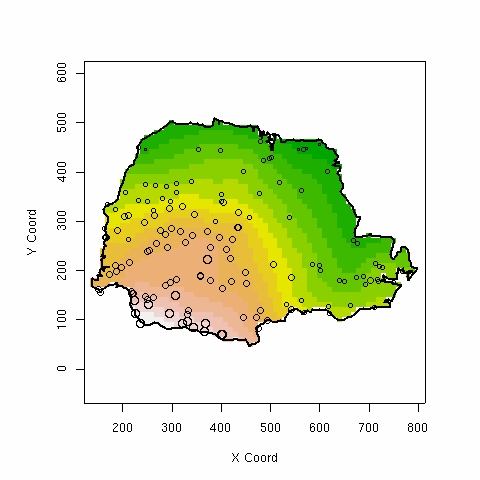
|
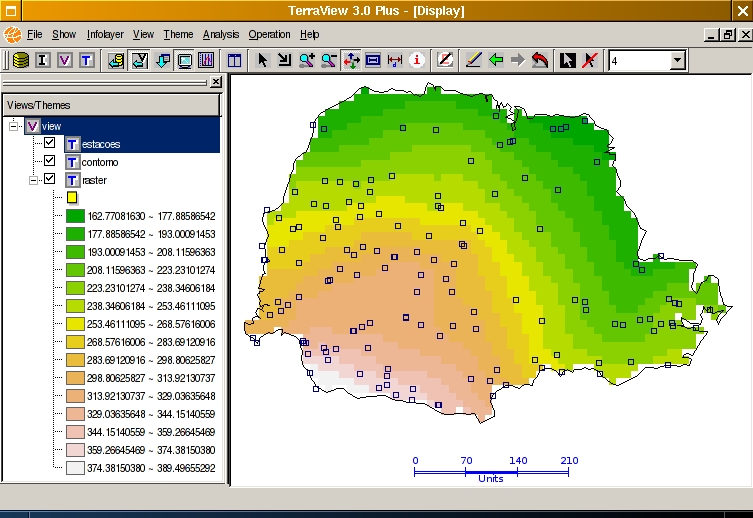
|
|---|
One of the main objectives of aRT is to do spatial queries and operations in R. For example, in the following figure we have a spatial data from a TerraLib database of Recife city, in Brazil. In the top left figure we have the map of Recife and its districts, with some points, and the bottom left figure shows the seweage. The other two result from spatial queries. The top right answers "Which districts contains the points (yellow) and which ones are their neighbours (green)?" and the bottom right answers "Which sewers are inside (red) or touches (green) the districts that contain the points?"
Another example is shown below. In the left figure there are two cities and their neighbours of first and second order. The right side shows all the neighbours that are completely within a buffer given a distance from the polygons, and the ones that has some overlap with this buffer.
Documentation
User Guides (also distributed as package vignettes)
Papers and Presentations
- Integration of Statistics and Geographic Information Systems: the R/TerraLib Case. P. R. Andrade, P. J. Ribeiro Junior, K. Fook. GeoInfo 2005 (paper, presentation)
- A Process and Environment for Embedding The R Software into TerraLib. P. R. Andrade, P. J. Ribeiro Junior. GeoInfo 2005 (paper, presentation)
Data sets and scripts
Please uncompress the zip files in the current folder before running the scripts. For more examples, see folder 'tests' within aRT installation folder.
- Creating cells and filling attributes (script, shapefile data)
- Union of polygons (script, shapefile data)
- Neighbourhood, relations, and metrics (script, data dumped from R)
- Adehabitat example (script, shapefile data)
Courses
- An Introduction to aRT (in portuguese)
Other links
- aRT development page
- Old versions (source code, see changelog for system requirements)
- Old Windows versions (see changelog for TerraLib version)
- R resources for spatial statistics at the the CRAN spatial task view.
Contact
Discussion list
- art_l at leg.ufpr.br
Developers
- Pedro Ribeiro de Andrade - pedro.andrade at inpe.br (maintainer)
- Paulo Justiniano Ribeiro Junior - paulojus at ufpr.br
- Eduardo Sant'Ana da Silva - eduardo.santanadasilva at gmail.com
- Henrique Dallazuanna - wwwhsd at gmail.com
Collaborators in earlier versions
- Marcos Aurélio Carrero
- Adriana Zanella Martinhago
- Thiago Eugênio Bezerra de Melo
- Elias Teixeira Krainski
- Karla Donato Fook
Acknowledgements
aRT has been developed with the computational resources of the Laboratory of Statistics and Geoinformation (LEG), at UFPR, together with Earth System Science Center (CST) and Image Processing Division (DPI), at INPE.
This project is partially supported by Fapesp, process number 04/11012-0, FPLF process 2005.05.066, and CNPq 552044/2002-4.
